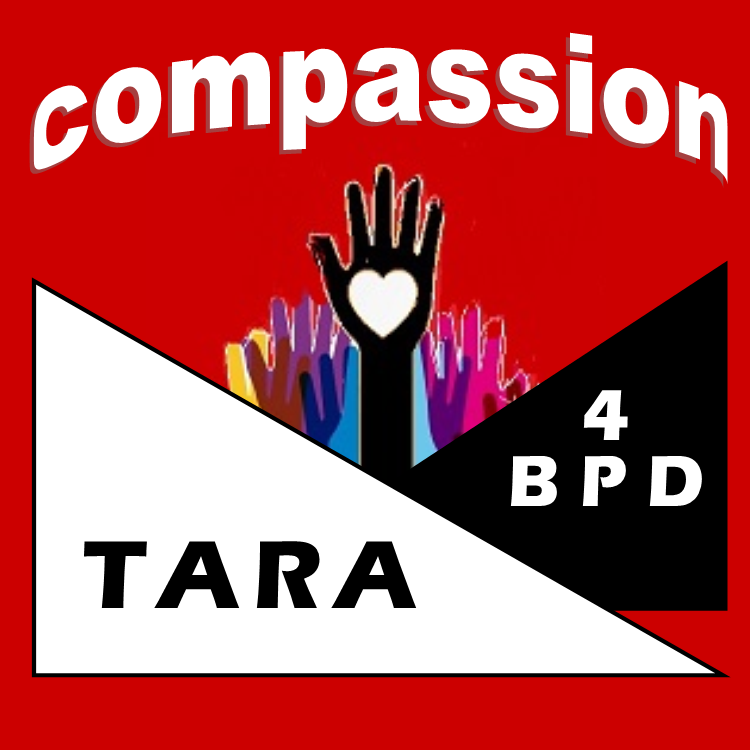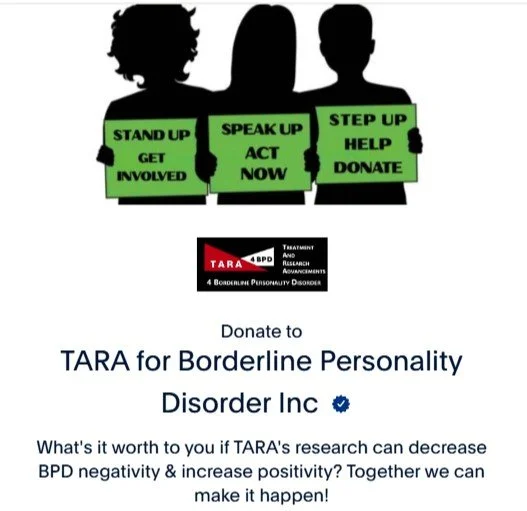If those of you who has benefited from TARA4BPD's help
donates according to their means, we will be able to start reframing BPD.
Dear Friends of TARA,
If you are reading this letter, you already know about TARA4BPD and the work we do to help people with BPD and their families.
For the past 25 years we’ve listened to thousands of family observations and first hand BPD experiences, often dismissed and trivialized by professionals.
Clinicians continue to blame families for BPD. Fortunately, the Internet now allows us to collect data that can provide data and validate your experiences.
What Your Donation Can Do
Provide science based information and facts to decrease the stigma against those with BPD and their families
Hire data analysts and research assistants to analyze and disseminate our research findings to those who can explore understudied areas.
Fund Educational Scholarships so that more families can benefit from TARA’s educational programs.
Hire social media experts to disseminate the TARA Method of Family Psychoeducation and family perspectives
Fund gifted students to pursue further study of BPD by giving them the opportunity to network with renowned BPD research experts
Help TARA expand our website and internet presence so that we can provide you and the public with research based information
Employ a grant writer to help us fund new projects to help children cope with a BPD parent and siblings struggling with a BPD family member
Researchers need your data, need to hear your voice!
Grassroots BPD Research Family’s perspectives can inform researchers.
Researchers need your data to know about the early childhood behavior, sensitivities and
experiences of those later diagnosed with BPD. This data is more reliable than the BPD “self-reports”,
which is the basis of so many BPD studies. Cutting-edge research shows that people with BPD have
perception and memory deficits, their childhood memories may not always be accurate. You are
already aware that your recollections differ from those of your loved one with BPD.
TARA’s Grassroots Research can provide new perspectives on family experiences, can reveal
correlations and relationships that might otherwise be overlooked. We can finally reframe clinical attitudes
towards families, vindicating you from the stigma and blame that hangs over BPD families, finally
acknowledging the power of loving families to help their oved one and to collaborate for change
Early childhood sensory sensitivity and irregular sleep patterns as potential indicators of future development of BPD.
Only you have this information. What would you have done differently had you known high sensitivity could be a sign of later BPD?
How does the person with BPD experiences the emergency room and hospitalization. Do your "safety" concerns do more
harm than good? Is there a better way for you to respond to crisis?
BPD DNA. The BPD genome has hardly been studied. Only you, collectively, can provide the large number of DNA samples
needed to study genetics in BPD and families.How SHAME inducing interactions trigger BPD behaviors in the moment. If you could recognize and avoid shame triggers,
frequency and intensity of episodes would decrease.



